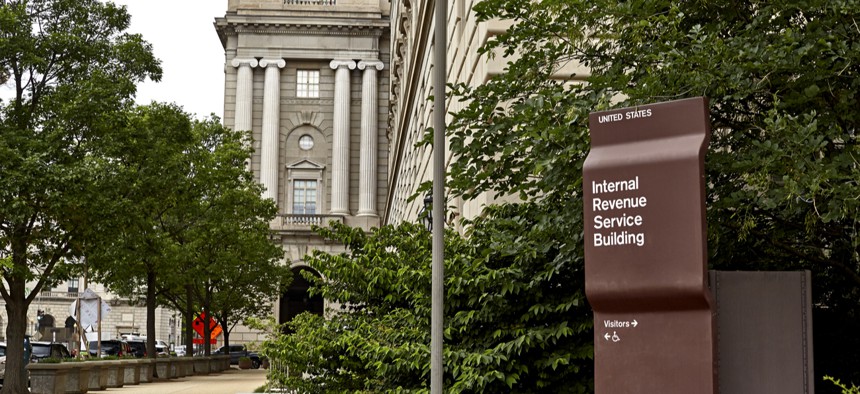
Shutterstock.com
Congress Can Shrink the Deficit by $63B by Boosting IRS Funding and Staffing
The tax agency has lost nearly half of its revenue officers since 2010.
The federal government could boost the revenue it collects by more than $100 billion by providing the Internal Revenue Service an extra $4 billion annually, according to a new analysis that said a rapid decline in resources and staffing for the agency has deeply hampered its ability to carry out its mission.
A $40 billion increase in IRS funding over the next 10 years would lead to an additional $103 billion in collected taxes, the Congressional Budget Office found in its report, decreasing the federal deficit by $63 billion over that period. A $20 billion appropriations boost would yield $61 billion in revenue, CBO said.
The IRS saw a 20% drop in funding between 2010 and 2018 and a corresponding 22% decrease in its workforce. The number of IRS enforcement employees fell by 30% in that period, with revenue agents and revenue officers—who handle the most complex tax enforcement cases—falling by 35% and 48%, respectively.
The number of individual tax returns IRS employees examined dropped by 46% in the same period, and by 38% for corporate returns. Given the adverse conditions IRS currently faces, CBO predicted its issues are likely to get worse.
“Trends are unlikely to reverse in the near future,” the researchers said. “The disruptions stemming from the 2020 coronavirus pandemic will reduce the IRS’s enforcement activities and pose new challenges for taxpayers in complying with tax laws.”
CBO also projected, however, the revenue generated by boosting funding for IRS could actually be larger than its estimates. If increased enforcement acted as a deterrent against violating tax laws in the first place, it would also lead to greater collections.
“Taxpayers may be more likely to comply with tax laws if they perceive a higher risk of being caught, even if they are not audited themselves,” CBO said.
IRS estimates an average of $381 billion in taxes went uncollected between 2011 and 2013. About 80% of that stemmed from taxpayers underreporting their liabilities. The agency’s ability to reduce that total would depend on its ability to hire and train employees quickly, CBO said, something the researchers called unlikely. Enforcement personnel face significant learning curves, CBO explained, and typically take four to five years to become “experienced senior-level revenue officers.”
While CBO based its estimate on a phased spending uptick, an average $4 billion annual appropriation increase would mark a significant increase from its current budget. The agency received $11.5 billion in funding in fiscal 2020. House Democrats have proposed boosting that to $12.1 billion for fiscal 2021. The Senate has yet to release its proposal.







